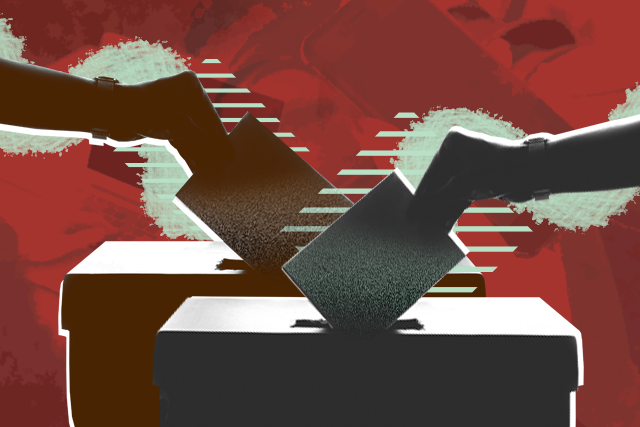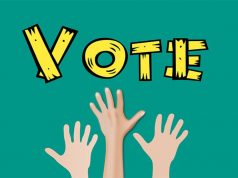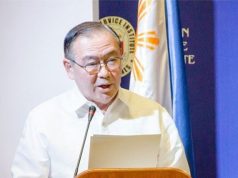
The youth of today might be more technologically inclined than those before them but their ability to critically evaluate information on digital platforms is critical in how they view socio-political issues.
A recent survey conducted by the Far Eastern University’s Public Policy Center finds that Filipinos ages 17 to 24-years-old—collectively called Generation Z, which succeeds Generation Y or millennials—generally rely on the internet and social media to get news.
However, despite the amount of information they encounter daily, they do not have definite stances on the country’s most pressing issues today such as extrajudicial killings, the reinstatement of death penalty and the maritime dispute with China, among others.
The result is an indication that the youth needs to be more discerning in reading and evaluating information on the internet, particularly if it concerns political affairs, according to economist JC Punongbayan of the FEU Public Policy Center.
“Gen Z reads the news, they accept that what they read was true and they don’t bother to evaluate, that’s why we need to guide them in their choices in the 2019 polls and to instill greater critical thinking and inculcate them against disinformation,” he remarked.
The survey was conducted to gain better insights on Generation Z and how the age cohort understands socio-political issues with the upcoming midterm elections in mind.
Based on data gathered by the Commission on Elections, older members of Gen Z comprise 18.5 percent or “nearly a fifth” of the total registered voters in the country.
Results of the survey suggest that today’s youth are “apathetic” when it comes to political affairs, Punongbayan said.
“It seems that many Gen Z students are largely politically apathetic. Although they placed great value in critical thinking, they hardly demonstrate for a cause. They never discussed politics or communicate their ideas or opinions,” he observed.
The survey was conducted in a “longitudinal” manner where selected students were asked questions as they go through their college years from freshman to senior level.
FEU’s study focused on two units—those who were in first-year college in 2014 and in 2015. A total of 4,323 freshmen were sampled in 2014 while 6,676 freshmen were sampled in 2015.
The sample figures represent the overall number of freshmen who participated in the survey—27,741 students in 2014 and 53,489 students in 2015.
A total of 35 schools were visited for the study, 18 of which are located in Metro Manila, while eight are in Luzon, two in Visayas and three in Mindanao.
Freshmen students were surveyed following a “randomized block sampling” method in which they were grouped by academic programs and sex.
They were asked to weigh their stances on different political and civic issues such as extrajudicial killings and the drug war, divorce, demands of the LGBT community, the territorial dispute with China and death penalty, among others.
Information such as their daily activities, factors why they enrolled in college and their abilities on certain matters were also considered.
‘Politically apathetic’

Following the results of the students surveyed in 2014, it was discovered that 17 percent of Generation Z members do not discuss politics even as 25 percent of them agree that being updated with political affairs are important.
In addition, 39 percent think they are up-to-date with current affairs.
“As many as 86% of the surveyed students said they never demonstrated for a cause, while 71% never worked on a local campaign, whether national or local. Moreover, 24% or almost a fourth said they never publicly communicated their opinions about a cause,” Punongbayan noted.
He observed that the numbers are low considering that the particular generation would take part in the midterm elections.
In specific issues, it was discovered that 33 percent of them are “uncertain” if the government employs killings as a method to combat narcotics, despite various journalistic findings.
As many as 56 percent also agree that death penalty should be reinstated in the country’s judicial system, despite international human rights groups stating its reimposition would be “inhumane” and “unlawful.”
About 41 percent of Generation Z members also believe that summary execution is a legitimate means of controlling crime.
Additionally, 34 percent of them believe that the Philippines can give up their claim in the West Philippine Sea in exchange for developing ventures with China.
Susceptibility to disinformation
Punongbayan attributed the youth’s overall “unsettling” stance on important issues in the manner how they receive news and knowledge.
The survey indicats that as many as 44 percent rely on technology to obtain knowledge and 88 percent agree that it is “best” to source news from social media.
A separate survey from Pulse Asia reveals that 51 percent of Filipinos allow the information they see on their social media feeds influence their political views and opinions on the government.
The report said that most of them “changed their views concerning politics and government at least once because of something they had seen, read and/or listened to over the internet.”
However, findings also indicate only eight percent of the respondents critically evaluate the information they find online. Those who raise questions or ask clarifications only amounted to 12 percent.
“This (the results), combined with their singular reliance on information from the Internet and social media, could make these Gen Z students particularly susceptible to all manner of disinformation — from clickbait articles to misleading memes,” Punongbayan said.
He noted that Generation Z members lack discernment and the ability to critically evaluate the information they read on the digital sphere which eventually affects how they view and approach political topics.
“The picture that emerges, therefore, is that Gen Z—at least those in our survey—have quick access to information online and are immersed in social media, yet (are) not very diligent critical thinkers and not so politically engaged,” Punongbayan said.

Two years ago, Forbes reported that people shouldn’t heavily rely on social media—particularly Facebook—to receive news since it is not designed as “serious news aggregator” but a social media network.
The article argues that people should directly go to news websites if they wanted to consume information or be informed since its reports are more bound to be “vetted” and “fact checked.”
“If you want serious news aggregation, read the AP or Reuters. If you want memes and trending stories about celebrities, read Facebook,” the article noted.
There is also the issue of the proliferation of “fake news” and misleading reports being shared on social media. This makes young people more susceptible to cases of disinformation.
In November 2018, dubious social media accounts emerged which heavily supported public officials qualified to run in the midterm elections.
The Guardian also observed that politicians in the Philippines encourage the spread of “fake news” in social media to destroy their critics’ reputation and “crush dissent.”
Heavy reliance on social media for news content, along with the issue of misleading reports being disseminated on popular platforms like Facebook and Twitter, greatly affects how the youth process information and use it to develop their views on certain issues. — Artwork by Uela Badayos









